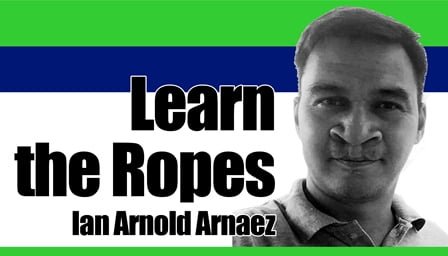
My apologies for not writing my column for several weeks, I guess four weeks. December, being the last month of the year, is a busy time for any organization, including DepEd. It’s not only the parties; no, not last year because it was prohibited, thanks to COVID-19, but because of yearend reports and what have you. Also, the start of the year brings with it more things to do. Anyway, I’m back full of hope that I will be able to deliver my column regularly.
In my last column, I discussed inaccuracy and discriminating content of the printed modules being used for the distance or remote learning of our learners. I ended the column with the tattoo issue.
A few days after I wrote that article, Lea Salonga, yes, the famous international stage actress, issued her apologies for commenting on the issue without knowing that the test questions that went viral were part of a reading comprehension test. Poor Lea, she allowed herself to be victimized by unscrupulous individuals whose only goal was to destroy DepEd and the whole education system.
Paper and the environment. Due to the volume of paper required to print the modules, its environmental impact became a national issue from the very start. Just imagine how many trees must be cut to produce millions of reams of bond papers to supply the needs of schools nationwide. Our forests are already denuded, and this could further aggravate the problem.
To counter this problem, one thing that must be considered when things go back to “normal” is for the education sector to take the lead in replenishing the natural environment. Schools must take seriously such programs as “10 Million Trees in 10 Years” and the National Greening Program. However, it is not enough that tree planting activities will be conducted. There must be a shift to tree growing because the mere act of planting does not necessarily result in the growth of trees.
Budget and solidarity. DepEd’s distance learning, particularly the use of printed modules, also required a hefty amount for it to be implemented. Despite limited resources, the agency strategized to make ends meet by looking into available funds from different sources. This was augmented by the help from different partners particularly the local government units, private organizations and the parents.
Next steps. You might be wondering what will happen to the printed modules when the vaccine becomes available and COVID-19 is gone and children will go back to school for face-to-face classes.
Well, your guess is as good as mine.
Possibly, unanswered modules could be archived together with the books in the library. Maybe, there would come a time that they will be needed again for whatever reason; hopefully not, especially if the reason is as bad as this pandemic or even worse like a natural disaster.
Possibly, unanswered modules will be used to continue distance learning to give access to those who want to study, but could not, due to poverty, distance, age, among other things.
Possibly, answered or used modules will be recycled, given that it is made of biodegradable material, to produce products that could yield additional income to parents. Many non-governmental organizations could help in this endeavor.
Whatever the future of these modules, the fact remains that they were made out of the hard work and dedication of the teachers and have become a symbol of DepEd’s effort to continue the education of children despite the challenges of our times brought about by the pandemic.
And, these modules, not only contain lessons that children learned throughout the COVID-19 period but also lessons that even adults can learn to better their plans, decisions, and acts. – NWI



